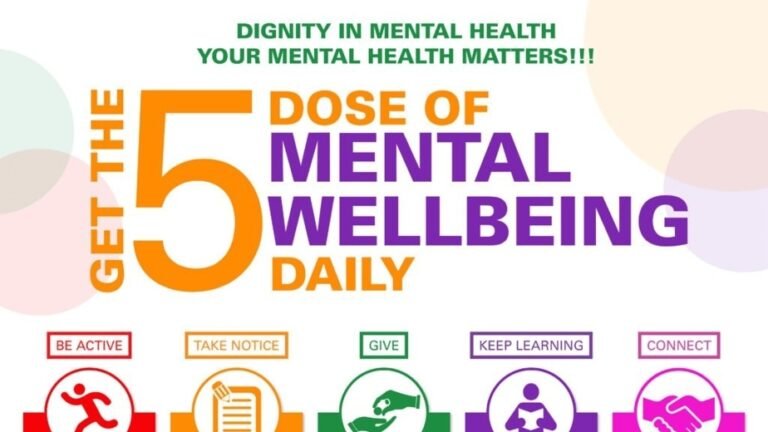The quest for health and wellness often focuses on physical fitness. However, the importance of mental health in maintaining overall health cannot be overstated. This article explores the complex relationship between mental and physical health, how stress and anxiety affect the body, and practical tips for achieving a healthy balance and promoting overall health. .
Understanding the relationship between mental health and physical health
The relationship between mental health and physical health is bidirectional. Mental health problems can cause physical health problems and vice versa. For example, chronic physical illnesses such as heart disease or diabetes can cause anxiety and depression. Similarly, mental health problems can lead to physical illnesses such as heart disease, high blood pressure, weakened immunity, and even shortened lifespans.
Nutrition: an important role in mental health
Another aspect of this relationship is the role of nutrition in mental health. A balanced diet has a positive impact on your mood and mental health. Biological aspects of nutrition influence the body’s ability to cope with stressors and support mental health. For example, a healthy gut microbiome is associated with improved mental health. Conversely, malnutrition can worsen symptoms of mental illness.
Happiness and health: a holistic approach
Health is not just about not getting sick. This includes physical fitness, mental and emotional health, and social connections. Strategies to improve health and well-being can be implemented at home, work, and school. This includes regular physical activity, maintaining a balanced diet, participating in social activities, and getting enough sleep.
Psychological well-being: a core aspect of mental health
Psychological well-being is a state of feeling happy and doing well. This includes positive social relationships, autonomy, a sense of mastery of the environment, self-acceptance, a sense of purpose, and personal growth. High psychological well-being is associated with better health, greater happiness, and longer lifespan. It can also reduce the likelihood of becoming involved in harmful activities such as criminal activity and drug abuse.
Resilience and psychological health
Resilience, the ability to adapt positively in the face of adversity, is recognized as an important asset and resource for maintaining overall health. For example, the COVID-19 pandemic has increased levels of anxiety and depression around the world. However, people with strong resilience were better able to adapt to new developments and threats to their health, social networks, employment, means of survival, and education.
Addressing mental health: A holistic approach
They tend to address the symptoms of mental illness rather than the root cause. However, a comprehensive approach to mental health requires consideration of defense mechanisms, generative impulses, aggressive tendencies, and the need to shift from a competitive perspective to a compassionate perspective.
final thoughts
Mental well-being is an important component of overall health. Understanding the relationship between mental health and physical health and implementing strategies to maintain a healthy balance can significantly improve your quality of life. Remember that it is important to seek professional help when dealing with mental health issues. Start prioritizing your mental health today for a healthier, happier tomorrow.


